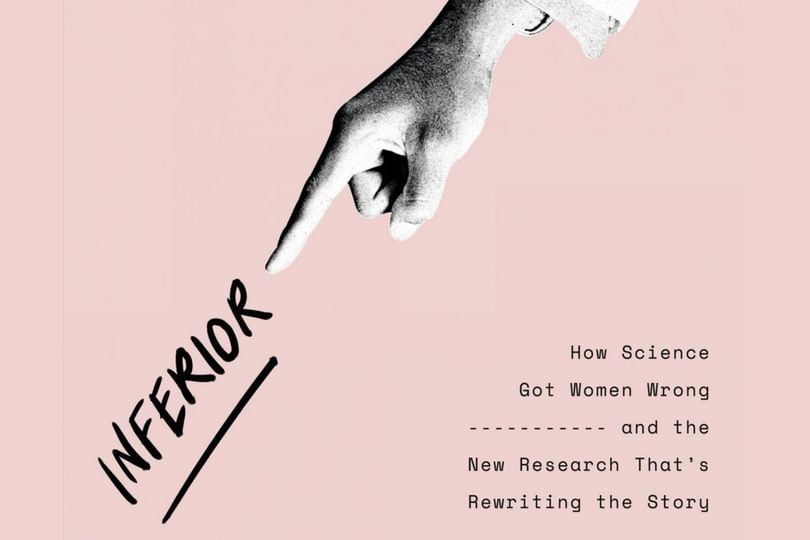
Shedding light on controversial research and investigating the ferocious gender wars in biology, psychology and anthropology, Angela Saini, to mark Ada Lovelace Day, will talk about how women are being rediscovered. She'll explore what these revelations mean for us as individuals and as a society, revealing an alternative view of science in which women are included, rather than excluded.
This talk will be followed by a drinks reception, book sale and signing, all welcome
About the speaker
Angela Saini is a science journalist, broadcaster and author. She presents science programmes on BBC Radio 4 and the World Service, and her writing has appeared across the world, including in New Scientist, The Guardian, The Times, Science, Cell, Wired, Wallpaper, Vogue, GQ, among others.
Her latest book, Inferior: How Science Got Women Wrong and the New Research That's Rewriting the Story, was published in 2017 by Fourth Estate, and was named the Physics World Book of the Year and voted runner-up in the Goodreads Choice Awards. Her first book, Geek Nation, was published by Hodder & Stoughton in 2011, becoming a bestseller in India.
In 2015 she won the American Association for the Advancement of Science's Kavli Science Journalism gold award for a BBC Radio 4 documentary she presented about birdsong and human language. In 2012 she won the Association of British Science Writers’ award for best news story, for a feature in The Guardian about the misuse of statistics in courtrooms. And she was named European Science Journalist of the Year by the Euroscience Foundation in 2009. She has also been shortlisted for both the Asian Women of Achievement Award and the Asian Achiever Award.
She started her career with ITN on its news trainee scheme. After that, she joined the BBC as a reporter, where her six-month investigation into bogus universities featured on the flagship national News at Ten and won a Prix Circom European television news award.
She has a Masters in Engineering from Oxford University, and a second Masters in Science and Security from the Department of War Studies at King’s College London. Between 2012 and 2013 she was a Knight Science Journalism Fellow at the Massachusetts Institute of Technology.
About the book
What science has gotten so shamefully wrong about women, and the fight, by both female and male scientists, to rewrite what we thought we knew
For hundreds of years it was common sense: women were the inferior sex. Their bodies were weaker, their minds feebler, their role subservient. No less a scientist than Charles Darwin asserted that women were at a lower stage of evolution, and for decades, scientists - most of them male, of course - claimed to find evidence to support this.
Whether looking at intelligence or emotion, cognition or behavior, science has continued to tell us that men and women are fundamentally different. Biologists claim that women are better suited to raising families or are, more gently, uniquely empathetic. Men, on the other hand, continue to be described as excelling at tasks that require logic, spatial reasoning, and motor skills. But a huge wave of research is now revealing an alternative version of what we thought we knew. The new woman revealed by this scientific data is as strong, strategic, and smart as anyone else.
In Inferior, acclaimed science writer Angela Saini weaves together a fascinating - and sorely necessary - new science of women. As Saini takes readers on a journey to uncover science’s failure to understand women, she finds that we’re still living with the legacy of an establishment that’s just beginning to recover from centuries of entrenched exclusion and prejudice. Sexist assumptions are stubbornly persistent: even in recent years, researchers have insisted that women are choosy and monogamous while men are naturally promiscuous, or that the way men’s and women’s brains are wired confirms long-discredited gender stereotypes.
As Saini reveals, however, groundbreaking research is finally rediscovering women’s bodies and minds. Inferior investigates the gender wars in biology, psychology, and anthropology, and delves into cutting-edge scientific studies to uncover a fascinating new portrait of women’s brains, bodies, and role in human evolution.
About Ada Lovelace Day
Ada Lovelace Day (ALD) is an international celebration of the achievements of women in science, technology, engineering and maths (STEM). It aims to increase the profile of women in STEM and, in doing so, create new role models who will encourage more girls into STEM careers and support women already working in STEM.
Born in 1815, Ada Lovelace collaborated with inventor Charles Babbage on his general purpose computing machine, the Analytical Engine. In 1843, Lovelace published what we would now call a computer program to generate Bernoulli Numbers. Whilst Babbage had written fragments of programs before, Lovelace's was the most complete, most elaborate and the first published.
More importantly, Lovelace was the first person to foresee the creative potential of the Engine. She explained how it could do so much more than merely calculate numbers, and could potentially create music and art, given the right programming and inputs. Her vision of computing's possibilities was unmatched by any of her peers and went unrecognised for a century.